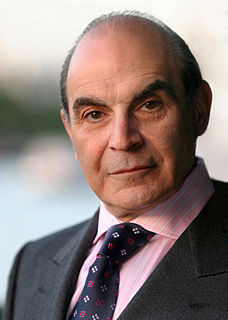A Quote by David Suchet
I became fascinated by the fact that people write to give away rather than write to be read. It's the difference between playwrights and novelists.
Quote Topics
Related Quotes
About four years ago I made a list, for my own amusement, of the playwrights, the contemporary playwrights, by whom critics said I'd been influenced. I listed twenty-five. It included five playwrights whose work I didn't know, so I read these five playwrights and indeed now I suppose I can say I have been influenced by them. The problem is that the people who write these articles find the inevitable similarities of people writing in the same generation, in the same century, and on the same planet, and they put them together in a group.
The most important thing is you can't write what you wouldn't read for pleasure. It's a mistake to analyze the market thinking you can write whatever is hot. You can't say you're going to write romance when you don't even like it. You need to write what you would read if you expect anybody else to read it.
I would give them (aspiring writers) the oldest advice in the craft: Read and write. Read a lot. Read new authors and established ones, read people whose work is in the same vein as yours and those whose genre is totally different. You've heard of chain-smokers. Writers, especially beginners, need to be chain-readers. And lastly, write every day. Write about things that get under your skin and keep you up at night.
I write because I have an innate need to. I write because I can't do normal work. I write because I want to read books like the ones I write. I write because I am angry at everyone. I write because I love sitting in a room all day writing. I write because I can partake of real life only by changing it.
It's a fun movie Death Note. Despite the fact that it's about killing people, it's even comical. But, there is an underlying message. I think we're in a place right now where everyone is really frustrated, and there's a lot of hate in the world and a lot of bullies and bigotry. Having the opportunity to get rid of that would be amazing. I wish that I could write down a whole concept, rather than a specific name. Rather than kill somebody, I'd like to write down "evil" in the notebook. That would be fantastic!




































